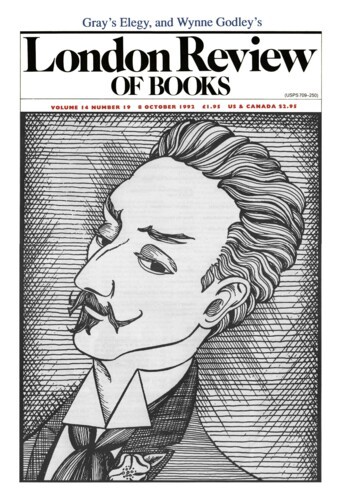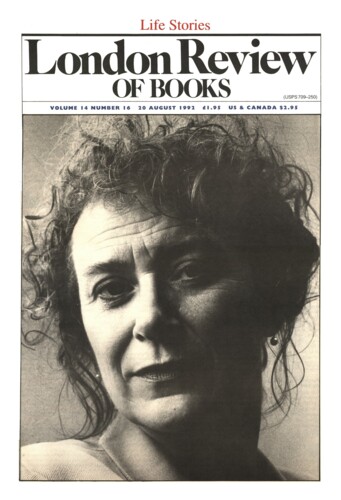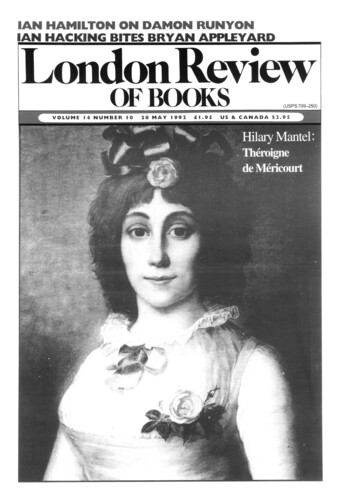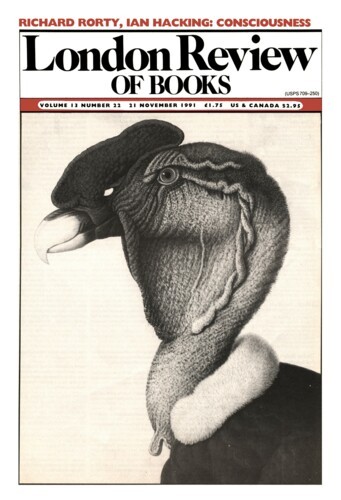Whitehall Farces
Patrick Parrinder, 8 October 1992
‘In its attitude towards Dickens,’ George Orwell wrote, ‘the English public has always been a little like the elephant which feels a blow with a walking-stick as a delightful tickling … One knows without needing to be told that lawyers delight in Sergeant Buzfuz and that Little Dorrit is a favourite in the Home Office.’ Lawyers these days doubtless read John Mortimer, and dons read the new university wits like David Lodge and Tom Sharpe. But in any wider competition for the post of English humorist-in-residence, Michael Frayn would surely be a prime contender. Now verging on sixty, his collected plays and translations fill three thick volumes, his early newspaper columns for the Guardian and the Observer have been reprinted, and he is well launched into the second phase of his career as a novelist. Frayn’s is a consistently inventive and innovative comic talent, and though he is no Dickens he brings something more than a feather-duster to bear on the British public’s hide.





